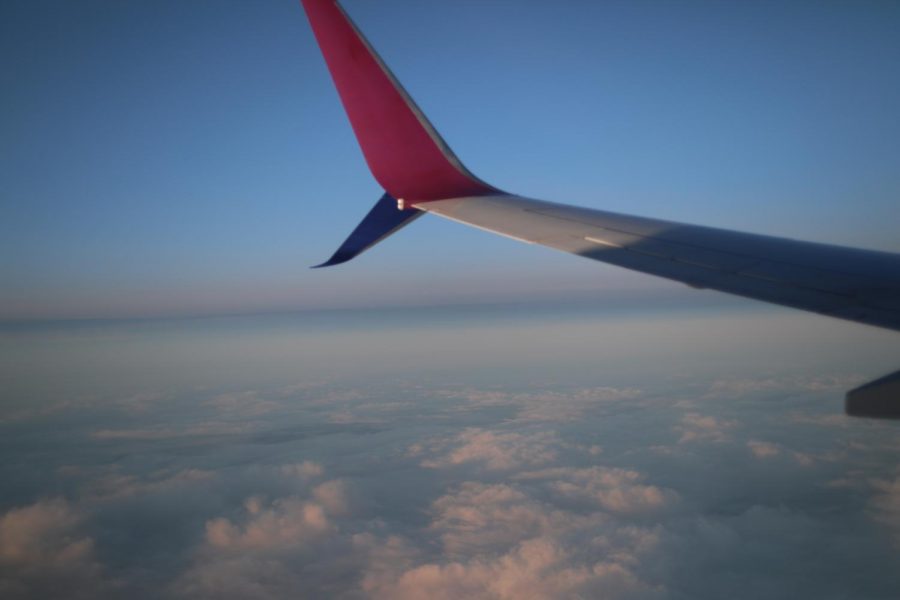Months after Crashes, Boeing Continues to Face a Crisis
February 5, 2020
Boeing has been facing the worst crisis in its history in the last year, creating ripples throughout the company, the Seattle region, and the national economy. Following two deadly crashes, Boeing was forced to indefinitely ground their new 737 Max airliners and halt production at their Seattle factories. Revelations about neglected safety procedures has brought the company under national scrutiny as their mistakes have cost billions of dollars.
In October 2018 and March 2019, two of Boeing’s new 737 Max airliner jets crashed, killing 346 people in total. Analysis of the crashes revealed that, in an effort to reduce the amount of safety certification and pilot training needed on these new planes, Boeing had implemented software that automatically adjusted flight controls to emulate prior 737 designs. However, this software had glitches which were easily triggered by faulty sensors, ultimately causing the crashes. Pilots were not properly trained with, or even informed about, this new software.
Days after the second crash, many airlines began grounding the plane worldwide. Boeing has repeatedly planned software patches, only to have them further delayed. There is still no timeline for clearing the planes for flight. Boeing stocks plummeted 25 percent since March as it has lost an estimated $8 billion and counting from this crisis. Boeing’s market value has fallen $50 billion. U.S. Treasury Secretary Steven Mnuchin stated that Boeing’s 737 Max Crisis could slow national economic growth this year by half a percentage point.
In response, Boeing was forced to temporarily shut down production of the 737 Max, redeploying approximately 3,000 workers from its main 737 factory in Renton, Washington. There are no immediate plans for layoffs, but some workers are being relocated as far as California. They will not return to their prior work until the 737 Max is cleared for flight. Boeing suppliers, on the other hand, have been forced to layoff workers. Fuselage producer Spirit Aerosystems said it would cut 2,800 jobs because of Boeing’s crisis.
The Federal Aviation Administration (FAA) has taken control of certification for each individual plane, further slowing the process. Boeing’s CEO, Dennis Muilenburg, was fired in December after failing to respond effectively to the crisis. Longtime board member Dave Calhoun took over as CEO this month, with the redeploying of 737 Max as his top priority. In an email to employees, Calhoun wrote, “Many of our stakeholders are rightly disappointed in us, and it’s our job to repair these vital relationships. We’ll do so through a recommitment to transparency and by meeting and exceeding their expectations. We will listen, seek feedback, and respond – appropriately, urgently and respectfully.” Many analysts, however, doubt that this change in leadership will help being about a speedy end to the crisis. Calhoun is not expected to shift company culture away from profit-focus.
The company’s reputation has taken a huge hit as more revelations emerge about the rushed safety standards on the 737 Max. Emails revealed in an FAA investigation show that key Boeing employees hid safety problems and deceived regulators in an attempt to hurry the 737 Max to market to compete with their chief rival, Airbus. They show a changing company culture towards cutting costs at the expense of sound engineering and safety standards. One internal email between workers joked, “”This plane was designed by clowns who are in turn supervised by monkeys.”
In the Seattle-area, Boeing traditionally has a reputation as a trustworthy company and a local cornerstone. But even at IHS, opinions appear to be changing. Sophomore Amita Prabhala said that “this crisis has changed my opinion somewhat because you expect planes to be better regulated than what’s currently going on with Boeing.” Junior Aditi Pauls agrees, pointing out, “There were intentional things that they could have done to make it safer and then they didn’t because of cost.”
Senior Mike Violette, while retaining an overall positive outlook on Boeing, believes that “there needs to be a more thorough testing process. Boeing essentially vets a lot of their own aircraft, so relying on the government more might be a better solution instead of relying on the private company do their own tests.” Violette added, “If the 737 max does go back into production, I would fly on it just because it’s gone through so much more rigorous testing. It’s probably safer than other airplanes would be.” Junior Atticus Slossen also holds an unchanged opinion on Boeing, but thinks that its problems arise when it acts like “a greedy multinational corporation.”
While previously lauded for excellence in engineering, the 737 Max crisis has shown the world that Boeing is still a major company relying on maximizing profits and competing in the market. They downplayed safety in favor of cutting costs, and it cost hundreds of lives and billions of dollars. This was a mistake that will stay with Boeing for a long time, likely taking years to fully recover.



